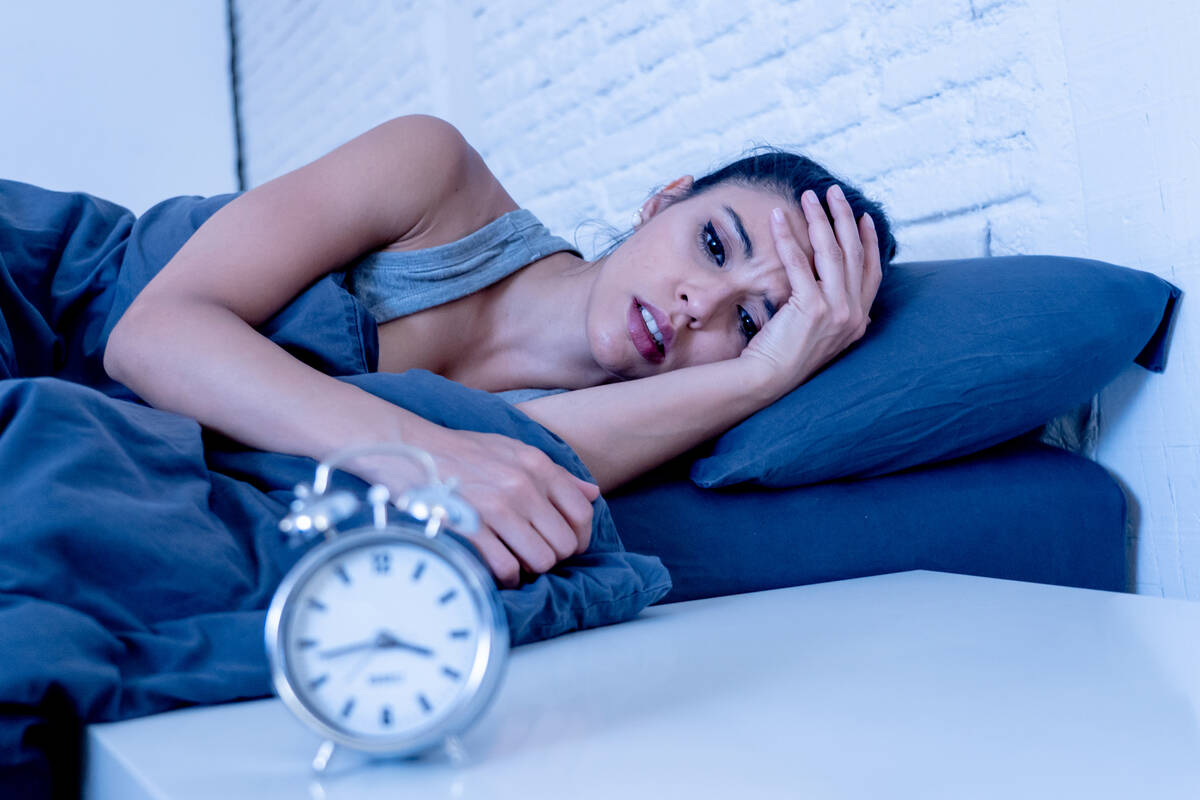5 strategies to help improve your sleep
Question: As I get older, I find I have increasing issues with sleep. I struggle to fall asleep and then stay asleep. I wake up during the night and get discouraged when I see the clock. By the time I get back to sleep, my alarm is set to wake me up. I feel groggy during the day and actively look for opportunities to nap. It would be great to wake up feeling rested and ready for the day. What can I do to improve my sleep?
Answer: You’re not alone if you have trouble falling asleep or staying asleep. Many people struggle with sleep — and that’s a problem, since sleep plays a crucial role in your health, energy levels and ability to function at your best. Most adults require seven to eight hours of sleep each night to feel well-rested and energized each day.
If restless nights have become the norm for you, or you find that your sleep is not refreshing for you, start by observing your sleep patterns. Take notes about how much you sleep each night, what factors contribute to your sleep, how rested you feel the next morning and how sleepy you feel throughout the day.
After observing your sleep patterns for at least one but preferably two weeks, try these five strategies to help improve your sleep:
Minimize light and sound
These two environmental factors can affect your quality and quantity of sleep. Darkness causes your brain to release melatonin for a calming, sleepy effect. As a result, it’s important to minimize your exposure to light before bedtime.
Even the light from your computer, TV or other devices might make it more difficult to fall asleep. Banish these devices from your bedroom, and create a dark space using blackout shades or an eye mask.
Noise also can interfere with your ability to sleep. Try using a fan or a noise machine to block out unwanted noises.
Get comfortable
Adults spend about a third of their lives asleep, so it’s worthwhile to invest in bedding that comforts and relaxes you. And don’t forget about your pillows, too.
Before climbing into bed, try lowering your thermostat a few degrees. Your core temperature drops during rest, and keeping your room chilly will aid in this natural temperature drop.
Keep a routine
Just like kids, adults sleep better when they have a bedtime routine. Stick to a regular sleep schedule. Aim to go to bed and wake up at the same time, both during the week and on the weekends.
Doing the same thing before bed each night can help prepare your body for rest and condition your brain for sleep. Stick to activities that promote relaxation, such as gentle stretching, writing in a journal, reading or meditation.
Manage stress
How you handle stress can significantly affect your ability to fall and stay asleep. While stress isn’t all bad, it can disrupt your sleep when it turns into worry or anxiety.
If your busy mind keeps you up at night, try practicing stress management techniques before bed. Listening to, but not watching, sleep talk-down meditations can help clear your mind before bed. Experiment with aromatherapy, deep breathing, keeping a gratitude journal or meditation.
Get out of bed
If you lie in bed stressing about your inability to sleep, get out of bed and do something that will promote relaxation. This might be reading an uninteresting book, practicing a relaxation technique or focusing on your breath. When you begin to feel sleepy, head back to bed. Avoid spending time in bed frustrated about sleep.
Make sleep a priority. Even if you’re already sleeping soundly, these tips can help.
If you’re still not getting enough sleep, use these additional suggestions until you get the sleep you need to feel your best each day:
— Keep a written log of your sleep schedule this week.
— Turn off your electronic devices — including your phone and TV — an hour before bed each night.
— Do some gentle stretches before bed to help you relax.
Continue making adjustments until restless nights become a thing of the past. If you struggle with sleep despite these measures, it may be time to talk with your health care team.
Dr. Rachel Ziegler specializes in pulmonary and critical care medicine with the Mayo Clinic Health System in Minnesota.


















